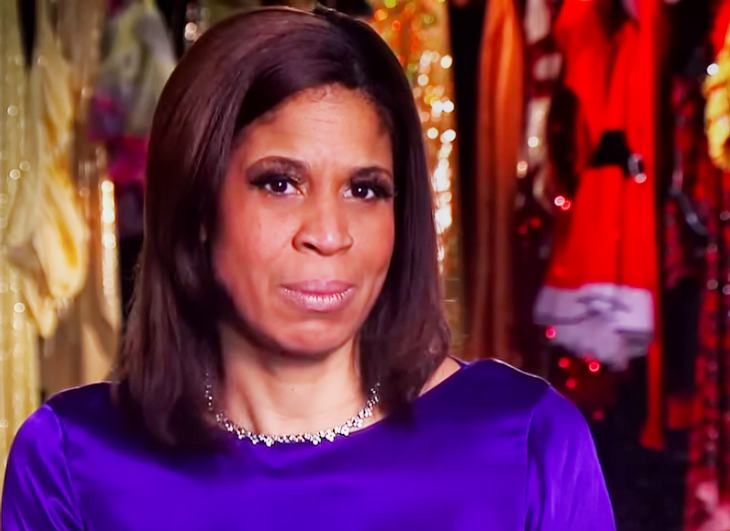When former Dance Moms sensation Nia Sioux unveiled her memoir, Bottom of the Pyramid: A Memoir of Persevering, Dancing for Myself, and Starring in My Own Life, it was intended as a powerful narrative of resilience, self-discovery, and personal triumph. Yet, the book’s release sparked an unexpected wave of controversy, shifting the spotlight from Nia’s profound journey to a heated debate involving her mother, Holly Frazier. Instead of universal acclaim, the memoir ignited a dialogue about accountability, parental decisions, and the harsh realities behind reality television. Holly Frazier, a steadfast figure throughout Nia’s time in the public eye, has not shied away from defending her daughter’s truth, directly addressing the criticism that has emerged.
A Candid Look at ‘Dance Moms’ Life Through Nia’s Eyes
Hitting shelves on November 4th, Nia Sioux’s memoir offers an unflinching, behind-the-scenes glimpse into her formative years on the massively popular Lifetime reality series. Now 24, Nia courageously recounts her experiences growing up under the intense scrutiny of national television, detailing instances of alleged racism and profound mistreatment she reportedly endured at the hands of her former dance coach, Abby Lee Miller. Nia and Holly Frazier were central figures on Dance Moms from its inception in 2011 until their departure in 2017. During this transformative period, audiences watched Nia evolve from a nine-year-old girl with burgeoning dreams into a confident, resilient teenager determined to carve out her own identity within a highly competitive and often brutal environment.
However, the memoir’s candid revelations prompted an unanticipated reaction. Critics began to redirect their focus from Nia’s deeply personal story to her mother, Holly Frazier, accusing her of allowing her daughter to remain on the show for an excessive duration, especially in light of the alleged racial undertones. This unexpected pivot in public discourse prompted Holly Frazier to take a stand, ensuring that her daughter’s narrative remained central.
[[IMG1]]
Holly Frazier’s Powerful Defense: “Do Not Invalidate Nia’s Experience”
In a compelling TikTok video posted on November 3rd, Holly Frazier directly confronted the mounting criticism, describing certain accusations as manipulative attempts to deflect from the core issues Nia’s memoir bravely addresses. Her message was clear and unequivocal: she would not permit her daughter’s experiences to be undermined.
“I am quiet because this is Nia’s moment to shine, but I see you,” Frazier asserted, her voice firm. “Some of you are being manipulative by trying to deflect the issue onto me. The issue is not me… Do not invalidate [Nia’s] experience by trying to shift the blame on her mother. Shame on you. You should be embarrassed. That was an ignorant, low blow.” Frazier, a devoted mother of three, underscored that the hardships her daughter faced stemmed from “someone who did not do their job,” pointedly adding, “No one was hired to be evil or cruel.”
In the same breath, Frazier emphasized that neither she nor Nia owed anyone an explanation for sharing their truth. “So many people have been touched by [Nia’s] experience that she wanted to share [it] because she knows other people identify and relate and she’s not alone.” This statement highlighted the memoir’s broader purpose: to provide solace and recognition to others who have faced similar challenges, thereby transforming a personal story into a shared experience of validation and empowerment.
[[IMG2]]
Former Co-Stars Weigh In: A Different Perspective
The conversation surrounding Nia’s memoir gained further complexity when Holly Frazier’s former Dance Moms co-stars, Christi Lukasiak and Kelly Hyland, discussed the book on their popular podcast, Back to the Barre. Hyland conveyed their surprise regarding the memoir’s release, admitting they felt somewhat blindsided by certain aspects of its contents, especially given the shared history among the cast members.
“She talks about all of us and our kids, and I just feel like … a phone call would have been nice, saying ‘My daughter is going to talk about everybody in the book,’” Hyland commented. She also pointed out that her own children were not present for the vast majority of the events Nia describes in the book, yet they felt “lumped in all of that.” Hyland further echoed a common question raised by critics: why didn’t Frazier simply remove Nia from the show if the environment was as detrimental as depicted in the memoir?
Holly Frazier, however, directly addressed this very point in her TikTok video. She clarified that their family was bound by stringent contractual obligations, making a straightforward exit incredibly challenging. Furthermore, Nia herself expressed a strong desire to stay and prove her capabilities. Within her memoir, Nia elaborates on her parents’ repeated attempts to withdraw her from the show, only to be met with the unbreakable constraints of their contracts. Frazier also admitted that she often “had to bite her tongue” during challenging moments because Nia was determined to persevere and demonstrate her worth, even in the face of adversity.
Confronting Racial Dynamics: Nia’s Painful Revelations
Nia’s courageous account in Bottom of the Pyramid offers profound insights into the racial dynamics she navigated behind the scenes. She vividly recalls alleged instances of Abby Lee Miller questioning whether she ever wished she possessed “White girl hair” and assigning her solos that carried uncomfortable racial undertones. Perhaps one of the most startling claims is that Miller once allegedly offered singer Aubrey O’Day $10,000 not to collaborate with Nia during season 5 – a claim that has not received public comment from either Miller or O’Day.
In a previous interview with PEOPLE, Nia reflected on the significant impact of being the sole Black dancer for a substantial portion of the show’s run. “That is something that is part of my story and my journey. A lot of girls of color have been through these sorts of experiences,” she shared. “It’s important to share diverse stories and stories from people of color, especially when it comes to talking about racism and being the token Black girl.” Her words underscore the profound isolation and unique challenges faced by minority individuals in predominantly white spaces, particularly within the entertainment industry. Nia’s narrative serves as a vital voice for countless others who have felt marginalized or stereotyped due to their race.
Beyond the Blame Game: A Call for Empathy and Support
Holly Frazier’s powerful TikTok message was more than just a rebuttal to critics; it was a heartfelt plea for empathy and genuine support for her daughter. “Instead of talking about my kid, instead of talking about a book you haven’t read, why don’t you support her?” she implored, before extending gratitude to the many individuals who have championed Nia throughout this journey. She concisely captioned her post, “I am disengaging from anyone who has the wrong opinion,” signaling her refusal to engage with unproductive negativity.
For Holly Frazier, the ultimate objective remains crystal clear: to ensure that her daughter’s authentic voice—and not the distracting noise of external criticism—defines this pivotal moment in her life. “What we’re not going to do,” she added firmly, “is manipulate the truth and the narrative to fit your own agenda because you don’t want to hold certain people accountable… We’re not going to take advantage and do my kid wrong.” This steadfast stance reinforces the notion that Nia’s story is her own, deserving of respect, understanding, and an audience willing to listen without bias.
The Enduring Impact of a Shared Story
Nia Sioux’s memoir, supported by her mother Holly Frazier’s unwavering defense, transcends a simple celebrity tell-all. It stands as a testament to the courage required to confront past traumas, especially those experienced during formative years in the public eye. The subsequent debate underscores the complex responsibilities of parents navigating the volatile landscape of reality television and the vital importance of believing and validating the lived experiences of young people, particularly when they involve issues as profound as racism and mistreatment. This narrative is a powerful reminder that sharing one’s truth, no matter how challenging, can inspire, educate, and offer solidarity to countless others facing similar struggles. It invites readers to look beyond superficial headlines and engage with the deeper conversations around accountability, empathy, and the true cost of fame.















































































































